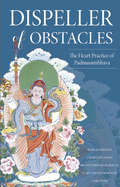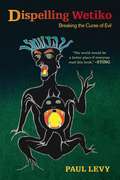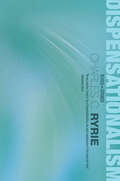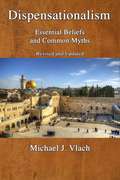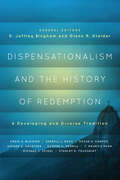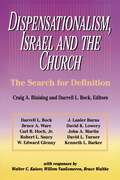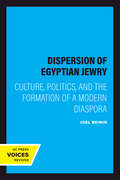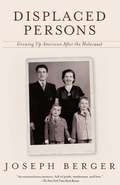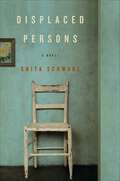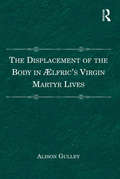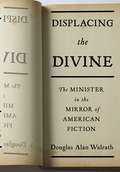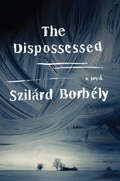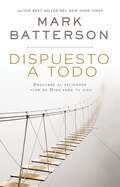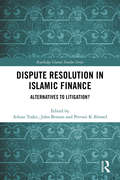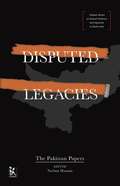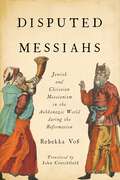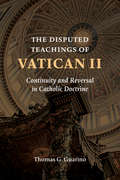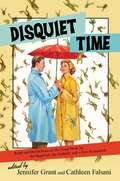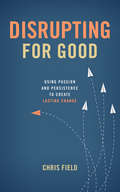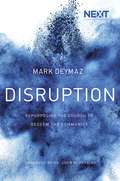- Table View
- List View
Dispeller of Obstacles
by Padmasambhava Guru Rinpoche Chokgyur Lingpa Jamyang Khyentse Wangpo Lama Pema Tashi PutsiThe Dispeller of Obstacles is the heart essence of the accomplished master Padmasambhava who perceives the three times in the entirity. It is the quintessence of one billion heart sadhanas of the Guru, the most unique terma buried in the land of Tibet; and it is the first among the Four Cycles of Guru Sadhana. This Guru's Heart Practice that Dispels all Obstacles contains in completeness all the profound key points of the view, meditation and conduct of the Three Inner Yoga Tantras. It manifested from the secret treasury of the great wisdom, the vast realization of the Second Buddha of Uddiyana, as the self-existing natural vajra sounds in perfect melodious tones.Its expressions that are unmodified by the intellect of ordinary people, its words that are without delusion, and its meaning that is unmistaken, are exclusively due to the kindness of the three powerful knowledge-holders [Khyentse, Kongtrül, and Chokling], the great beings of the three families, who incarnated as masters to compile and propagate an ocean of secret teachings. It is exclusively through their kindness that this teaching was established in writing as the splendor of unending welfare and happiness for the disciples in the Land of Snow, and propagated to flourish everywhere.Dilgo Khyentse RinpocheBefore Padmasambhava left Tibet, he made many predictions and hid many teachings to be revealed in the future and he blessed his close disciples to be inseparable from himself. In this way, they would reincarnate in the future, reveal the hidden teachings and be as powerful as Guru Rinpoche himself, endowed with great miraculous powers, such as the ability to fly through the sky, traverse freely through solid matter and be unimpeded in expounding all the sutras and treatises as well as the meaning of the tantras.In particular, he prophesied the coming of 108 great tertöns or 'hidden treasure-revealers.' Since world history fluctuates causing particular difficulties to arise at different times which must be faced by human beings, each tertön would appear at a certain period in history. Having foreknowledge of these historic intervals, Guru Rinpoche designed specific practices which would be revealed at the appropriate times in order to aid human beings. The tertöns who would reveal the 'termas' would then have a teaching that was totally fresh and up-to-date, and meant for that specific time and situation.Just as we prefer to have fresh food prepared in a way that will not make us sick because its rotten, in the same way, the terma teachings revealed with the 'short lineage' are endowed with a very special quality. Namely, that it has a 'short lineage' which has not been interrupted by any damage or breaking of samaya. It has not been interpolated by anyone else, but has come directly from Guru Rinpoche by means of the revelation of one of his disciples appearing as a present-day incarnation. The teaching is then spread to people for their immediate practice.The Dispeller of Obstacles belongs to this class of teachings. This is cycle of teachings is based on guru sadhana. Guru Rinpoche practice is extremely important because Guru Rinpoche, the Lotus-born One, is not just a legendary figure from some old story of the past. He is an actual person who continuously carries out spontaneous activities, not only by sending emanations of himself into this world as 'tertöns' so that there is always a fresh unimpaired teaching that people can practice.but, also because Guru Rinpoche's spiritual influence and blessings are unceasing. If we can practice this sadhana, it will be very beneficial.Tulku Urgyen RinpocheDispeller of Obstacles is the most profound terma of the universal monarchs, Chokgyur Dechen Lingpa and Jamyang Khyentse Wangpo. There are many different sections of this teaching: there is the main part and there are the secondary teachings associated with this cycle. It is based on the teacher, for us individually the person who shows what to adopt and what to avoid, to follow a true path, is our individual root guru. That is the same as if someone opens a...
Dispelling the Darkness: A Jesuit's Quest for the Soul of Tibet
by Donald S. Lopez Jr. Thupten JinpaIn a remote Himalayan village in 1721, the Jesuit priest Ippolito Desideri wrote a treatise in classical Tibetan intended to refute key Buddhist doctrines and dispel the darkness of idolatry from Tibet. Dispelling the Darkness provides extended excerpts from this unfinished masterpiece and a full translation of a companion work.
Dispelling Wetiko: Breaking the Curse of Evil
by Paul Levy Catherine Austin FittsThere is a contagious psychospiritual disease of the soul, a parasite of the mind, that is currently being acted out en masse on the world stage via a collective psychosis of titanic proportions. This mind-virus--which Native Americans have called "wetiko"--covertly operates through the unconscious blind spots in the human psyche, rendering people oblivious to their own madness and compelling them to act against their own best interests. Drawing on insights from Jungian psychology, shamanism, alchemy, spiritual wisdom traditions, and personal experience, author Paul Levy shows us that hidden within the venom of wetiko is its own antidote, which once recognized can help us wake up and bring sanity back to our society.From the Trade Paperback edition.he fact that so many people seem to be oblivious to the absolute insanity of it all.For those who are looking at the current state of affairs and wondering how such madness can proliferate, Levy provides an answer--as well as a solution. Lying dormant in the venom of wetiko, he says, is its antidote--one that can help us wake ourselves and each other up from this mass hypnosis and finally bring sanity back to society.From the Trade Paperback edition.
Dispensationalism
by Charles C. RyrieDispensationalism continues to provoke heated debate within the Christian world. Highly acclaimed theologian, Dr. Charles C. Ryrie, addresses this crucial issue from the perspective of classic dispensationalism. He confronts the views of covenant theology, historical premillennialism, ultradispensationalism, and, in this revised edition, the increasingly popular progressive dispensationalism. In his best-selling book, Dispensationalism Today, written more than thirty years ago, Dr. Ryrie made this complex subject more understandable for thousands worldwide. This revised and expanded version of that book will prove to be an invaluable reference tool for your library.
Dispensationalism
by Charles C. RyrieDispensationalism continues to provoke heated debate within the Christian world. Highly acclaimed theologian, Dr. Charles C. Ryrie, addresses this crucial issue from the perspective of classic dispensationalism. He confronts the views of covenant theology, historical premillennialism, ultradispensationalism, and, in this revised edition, the increasingly popular progressive dispensationalism. In his best-selling book, Dispensationalism Today, written more than thirty years ago, Dr. Ryrie made this complex subject more understandable for thousands worldwide. This revised and expanded version of that book will prove to be an invaluable reference tool for your library.
Dispensationalism: Essential Beliefs and Common Myths
by Michael VlachThis brief book is an attempt to identify the foundational issues of dispensationalism and to expose common myths concerning dispensational theology. Or to put it another way, my aim is to discuss what dispensationalism is and what it is not. I believe we can identify the core beliefs of dispensationalism. Likewise, we also can identify those issues that are often mistakenly viewed as essential to dispensationalism but in reality are not. - p. 3. In an attempt to correct common misperceptions about dispensational theology, Michael Vlach addresses six essential beliefs that are truly at the heart of dispensationalism. He also exposes five common myths about dispensationalism that are often promoted by opponents of this theology.
Dispensationalism and the History of Redemption: A Developing and Diverse Tradition
by D. Jeffrey Bingham and Glenn R. KriederTop-level scholarship on an enduring traditionDispensationalism has long been associated with a careful, trustworthy interpretation of Scripture. Reflective of its past and present status and strategic to its future, Dispensationalism and the History of Redemption is a fresh defense of a time-tested tradition.Made up of ten essays from leading dispensationalist scholars, this volume covers the critical elements to know:An introduction to dispensationalism—including its terms and biblical supportThe history and influence of dispensationalism—from its roots in John Nelson Darby to its global reach through missionsThe hermeneutic of dispensationalism—the interpretive principles behind the systemDispensationalism and redemptive history—the story of salvation traced through the Old and New Testaments, including their unity and diversity in relation to ChristDispensationalism and covenant theology—a comparison and contrast between two main evangelical perspectives on Scripture&’s unityWith contributors from top-tier schools like Dallas Theological Seminary and Wheaton College, Dispensationalism and the History of Redemption is an expert treatment of an enduring yet developing tradition.
Dispensationalism and the History of Redemption: A Developing and Diverse Tradition
by D. Jeffrey Bingham and Glenn R. KriederTop-level scholarship on an enduring traditionDispensationalism has long been associated with a careful, trustworthy interpretation of Scripture. Reflective of its past and present status and strategic to its future, Dispensationalism and the History of Redemption is a fresh defense of a time-tested tradition.Made up of ten essays from leading dispensationalist scholars, this volume covers the critical elements to know:An introduction to dispensationalism—including its terms and biblical supportThe history and influence of dispensationalism—from its roots in John Nelson Darby to its global reach through missionsThe hermeneutic of dispensationalism—the interpretive principles behind the systemDispensationalism and redemptive history—the story of salvation traced through the Old and New Testaments, including their unity and diversity in relation to ChristDispensationalism and covenant theology—a comparison and contrast between two main evangelical perspectives on Scripture&’s unityWith contributors from top-tier schools like Dallas Theological Seminary and Wheaton College, Dispensationalism and the History of Redemption is an expert treatment of an enduring yet developing tradition.
Dispensationalism, Israel and the Church: The Search for Definition
by Darrell L. Bock Craig A. BlaisingThe relationship between Israel and the church is a crucial reference point in theology, especially in distinguishing between dispensational and nondispensational ways of thinking. The thesis of this book is that Israel and the church are distinct theological institutions that have arisen in the historical progress of divine revelation. But they are also related as successive phases of a redemptive program that is historically progressive and eschatologically converging. The approach to these issues here is neither polemical nor apologetic; rather, it anticipates a convergence among evangelical scholars in the recognition of both continuity and discontinuity in the Israel-church relationship. This book has three purposes: - To offer a contemporary dispensational treatment of that relationship through an exegetical examination of key texts with a focus on theological concerns - To foster genuine dialogue with nondispensational thinkers regarding major biblical themes tied to the plan of God - To identify the changes in dispensational thought that have developed since the publication of Charles Ryrie's book Dispensationalism Today in 1965
The Dispersion of Egyptian Jewry: Culture, Politics, and the Formation of a Modern Diaspora (Contraversions: Critical Studies in Jewish Literature, Culture, and Society #11)
by Joel BeininIn this provocative and wide-ranging history, Joel Beinin examines fundamental questions of ethnic identity by focusing on the Egyptian Jewish community since 1948. A complex and heterogeneous people, Egyptian Jews have become even more diverse as their diaspora continues to the present day. Central to Beinin's study is the question of how people handle multiple identities and loyalties that are dislocated and reformed by turbulent political and cultural processes. It is a question he grapples with himself, and his reflections on his experiences as an American Jew in Israel and Egypt offer a candid, personal perspective on the hazards of marginal identities.
Displaced Persons: Growing Up American After the Holocaust
by Joseph BergerIn this touching account, veteran New York Times reporter Joseph Berger describes how his own family of Polish Jews -- with one son born at the close of World War II and the other in a "displaced persons" camp outside Berlin -- managed against all odds to make a life for themselves in the utterly foreign landscape of post-World War II America. Paying eloquent homage to his parents' extraordinary courage, luck, and hard work while illuminating as never before the experience of 140,000 refugees who came to the United States between 1947 and 1953, Joseph Berger has captured a defining moment in history in a riveting and deeply personal chronicle.
Displaced Persons: A Novel
by Ghita Schwarz“This is an amazing novel. The writing is piercing and clear, and the humanity of the author and her characters will inhabit my thoughts for years to come.”—Anne Roiphe, National Book Award-winning author of FruitfulAn astonishing tale of grief and anger, memory and survival, Displaced Persons marks the arrival of a supremely gifted new literary talent, Ghita Schwarz. Schwarz’s powerful story of a group of Holocaust survivors—“displaced persons”—struggling to remake their lives and cope with the stigma of their pasts in the wake of the monumental Nazi horror is beautiful, tragic, moving, and unforgettable, chronicling the lives of ordinary people who have suffered under extraordinary circumstances.
The Displacement of the Body in Ælfric's Virgin Martyr Lives
by Alison GulleyThe Displacement of the Body in Ælfric's Virgin Martyr Lives addresses 10th-century Old English hagiographical translations, from Latin source material, by the abbot and grammarian Ælfric. The vitae of Agnes, Agatha, Lucy, and Eugenia, and the married saints Daria, Basilissa, and Cecilia, included in Ælfric's s Old English Lives of Saints, recount the lives, persecution, and martyrdom of young women who renounce sex and, in the first four stories, marriage, to devote their lives to Christian service. They purport to be about the primacy of virginity and the role of the body in attaining sanctity. However, a comparison of the Latin sources with Ælfric's versions suggests that his translation style, characterized by simplifying the most important meanings of the text, omits certain words or entire episodes that foreground suppressed female sexuality as key to sainthood. The Old English Lives de-emphasize the physical nature of faith and highlight the importance of spiritual purity. In this volume, Alison Gulley explores how the context of the Benedictine Reform in late Anglo-Saxon England and Ælfric's commitment to writing for a lay audience resulted in a set of stories depicting a spirituality distinct from physical intactness.
Displacing The Divine: The Minister in the Mirror of American Fiction
by Douglas Alan WalrathAs religious leaders, ministers are often assumed to embody the faith of the institution they represent. As cultural symbols, they reflect subtle changes in society and belief-specifically people's perception of God and the evolving role of the church. For more than forty years, Douglas Alan Walrath has tracked changing patterns of belief and church participation in American society, and his research has revealed a particularly fascinating trend: portrayals of ministers in American fiction mirror changing perceptions of the Protestant church and a Protestant God. From the novels of Harriet Beecher Stowe, who portrays ministers as faithful Calvinists, to the works of Herman Melville, who challenges Calvinism to its very core, Walrath considers a variety of fictional ministers, including Garrison Keillor's Lake Woebegon Lutherans and Gail Godwin's women clergy. He identifies a range of types: religious misfits, harsh Puritans, incorrigible scoundrels, secular businessmen, perpetrators of oppression, victims of belief, prudent believers, phony preachers, reactionaries, and social activists. He concludes with the modern legacy of nineteenth- and early-twentieth-century images of ministers, which highlights the ongoing challenges that skepticism, secularization, and science have brought to today's religious leaders and fictional counterparts. Displacing the Divine offers a novel encounter with social change, giving the reader access, through the intimacy and humanity of literature, to the evolving character of an American tradition.
Displacing the Divine: The Minister in the Mirror of American Fiction (Religion and American Culture)
by Douglas WalrathAs religious leaders, ministers are often assumed to embody the faith of the institution they represent. As cultural symbols, they reflect subtle changes in society and belief-specifically people's perception of God and the evolving role of the church. For more than forty years, Douglas Alan Walrath has tracked changing patterns of belief and church participation in American society, and his research has revealed a particularly fascinating trend: portrayals of ministers in American fiction mirror changing perceptions of the Protestant church and a Protestant God.From the novels of Harriet Beecher Stowe, who portrays ministers as faithful Calvinists, to the works of Herman Melville, who challenges Calvinism to its very core, Walrath considers a variety of fictional ministers, including Garrison Keillor's Lake Woebegon Lutherans and Gail Godwin's women clergy. He identifies a range of types: religious misfits, harsh Puritans, incorrigible scoundrels, secular businessmen, perpetrators of oppression, victims of belief, prudent believers, phony preachers, reactionaries, and social activists. He concludes with the modern legacy of nineteenth- and early-twentieth-century images of ministers, which highlights the ongoing challenges that skepticism, secularization, and science have brought to today's religious leaders and fictional counterparts. Displacing the Divine offers a novel encounter with social change, giving the reader access, through the intimacy and humanity of literature, to the evolving character of an American tradition.
The Dispossessed: A Novel
by Szilard BorbelyA literary sensation on its original publication in Hungary, this hypnotic, hauntingly beautiful first novel from the acclaimed, award-winning poet and author Szilárd Borbély depicts the poverty and cruelty experienced by a partly-Jewish family in a rural village in the late 1960s and early 1970s."No one has ever written so beautifully and at the same time so without pity about the suffering in the isolated provincial villages of Hungary...His sentences have a surgical precision, and their sustained rhythm only reinforces the power of what they evoke."--Nicole Henneberg, Frankfurter Allgemeine ZeitungIn a tiny village in northeast Hungary, close to the Romanian border, a young, unnamed boy warily observes day-to-day life and chronicles his family's struggles to survive. Like most of the villagers, his family is desperately poor, but their situation is worse than most--they are ostracized because of his father's Jewish heritage and his mother's connections to the Kulaks, who once owned land and supported the fascist Horthy regime before it was toppled by Communists. With unflinching candor, the little boy's observations are related through a variety of narrative voices--crude diatribes from his alcoholic father, evocative and lyrical tales of the past from his grandparents, and his own simple yet potent prose. Together, these accounts reveal not only the history of his family but that of Hungary itself, through the physical and psychic traumas of two World Wars to the country's treatment of Jews, both past and present. Drawing heavily on Borbély's memories of his own childhood, The Dispossessed is an extraordinarily realistic novel. Raw and often brutal, yet glimmering with hope, it is the crowning achievement of an uncompromising talent.
Dispuesto a todo: Descubre el peligroso plan de Dios para tu vida
by Mark BattersonNo hay nada más emocionante en la vida que permitir que Jesús nos torne peligrosos.Basado en su libro más vendido, All In, Mark Batterson desafía las creencias erróneas de que Dios quiere enviarnos a lugares seguros para hacer cosas fáciles; que la fidelidad es la que nos mantiene inconmovibles; que jugar a lo seguro es seguro; que hay mayores privilegios que el sacrificio; y que lo radical es todo menos lo normal. En cambio, Batterson sostiene que Jesús no murió para mantenernos seguros. Murió para hacernos peligrosos. Aquí hay un desafío para darlo todo al entregar tu vida por completo al plan audaz que Dios tiene para ti. El mensaje de Not Safe! es simple: si Jesús no es el Señor de todo, entonces Jesús no es el señor en absoluto. Es todo o nada. Ahora o nunca. Es no estar inseguro ni seguro.
Dispute Resolution in Islamic Finance: Alternatives to Litigation? (Routledge Islamic Studies Series)
by Adnan Trakic John Benson Pervaiz K AhmedDispute Resolution in Islamic Finance addresses how best to handle disputes within Islamic finance. It examines how they can be resolved in a less confrontational manner and ensure such disagreements are settled in a just and fair way. There has been little focus on how disputes within Islamic finance are resolved. As a result, many of these disputes are resolved through litigation, notwithstanding that the various jurisdictions and court systems are generally poorly equipped to handle such matters. This book addresses this gap in our knowledge by focusing on five centres of Islamic finance: the United Kingdom, the United States of America, Malaysia, the Kingdom of Saudi Arabia and the United Arab Emirates. Before exploring these countries in detail, the book considers the issues of the choice of law within Islamic finance as well the prevailing forms of dispute resolution in this form of finance. The book brings together a group of leading scholars who are all specialists on the subject in the countries they examine. It is a key resource for students and researchers of Islamic finance, and aimed at lawyers, finance professionals, industry practitioners, consultancy firms, and academics.
Disputed Legacies: The Pakistan Papers (Zubaan Series On Sexual Violence And Impunity In South Asia Ser.)
by Neelam HussainThe Sexual Violence and Impunity in South Asia research project (coordinated by Zubaan and supported by the International Development Research Centre) brings together, for the first time in the region, a vast body of knowledge on this important - yet silenced - subject. Six country volumes (one each on Bangladesh, Nepal, Pakistan, Sri Lanka, and two on India) comprising over fifty research papers and two book-length studies detail the histories of sexual violence and look at the systemic, institutional, societal, individual and community structures that work together to perpetuate impunity for perpetrators. Disputed Legacies focuses on Pakistan, examining law, pedagogy, medical practice and the situations that arise when 'secular' law comes into conflict with traditional practice and belief. The contributors to this volume trace the often-troubled interaction between the state and its women citizens and examine the structures and social systems that enable impunity for perpetrators of sexual violence to gain strength.
Disputed Messiahs: Jewish and Christian Messianism in the Ashkenazic World during the Reformation
by Rebekka VoßDisputed Messiahs: Jewish and Christian Messianism in the Ashkenazic World during the Reformation is the first comprehensive study that situates Jewish messianism in its broader cultural, social, and religious contexts within the surrounding Christian society. By doing so, Rebekka Voß shows how the expressions of Jewish and Christian end-time expectation informed one another. Although the two groups disputed the different messiahs they awaited, they shared principal hopes and fears relating to the end of days. Drawing on a great variety of both Jewish and Christian sources in Hebrew, Yiddish, German, and Latin, the book examines how Jewish and Christian messianic ideology and politics were deeply linked. It explores how Jews and Christians each reacted to the other’s messianic claims, apocalyptic beliefs, and eschatological interpretations, and how they adapted their own views of the last days accordingly. This comparative study of the messianic expectations of Jews and Christians in the Ashkenazic world during the Reformation and their entanglements contributes a new facet to our understanding of cultural transfer between Jews and Christians in the early modern period. Disputed Messiahs includes four main parts. The first part characterizes the specific context of Jewish messianism in Germany and defines the Christian perception of Jewish messianic hope. The next two parts deal with case studies of Jewish messianic expectation in Germany, Italy and Poland. While the second part focuses on the messianic phenomenon of the prophet Asher Lemlein, part 3 is divided into five chapters, each devoted to a case of interconnected Jewish-Christian apocalyptic belief and activity. Each case study is a representative example used to demonstrate the interplay of Jewish and Christian eschatological expectations. The final part presents Voß’s general conclusions, carving out the remarkable paradox of a relationship between Jewish and Christian messianism that is controversial, albeit fertile. Scholars and students of history, culture, and religion are the intended audience for this book.
The Disputed Teachings of Vatican II: Continuity and Reversal in Catholic Doctrine
by Thomas G. GuarinoThe Second Vatican Council (1962–1965) radically shook up many centuries of tradition in the Roman Catholic Church. This book by Thomas Guarino, a noted expert on the sources and methods of Catholic doctrine, investigates whether Vatican II&’s highly contested teachings on religious freedom, ecumenism, and the Virgin Mary represented a harmonious development of—or a rupture with—Catholic tradition.Guarino&’s careful explanations of such significant terms as continuity, discontinuity, analogy, reversal, reform, and development greatly enhance and clarify his discussion. No other book on Vatican II so clearly elucidates the essential theological principles for determining whether—and to what extent—a conciliar teaching is in continuity or discontinuity with antecedent tradition.Readers from all faith traditions who care about the logic of continuity and change in Christian teaching will benefit from this masterful case study.
The Disputed Teachings of Vatican II: Continuity and Reversal in Catholic Doctrine
by Thomas G. GuarinoThe Second Vatican Council (1962–1965) radically shook up many centuries of tradition in the Roman Catholic Church. This book by Thomas Guarino, a noted expert on the sources and methods of Catholic doctrine, investigates whether Vatican II&’s highly contested teachings on religious freedom, ecumenism, and the Virgin Mary represented a harmonious development of—or a rupture with—Catholic tradition.Guarino&’s careful explanations of such significant terms as continuity, discontinuity, analogy, reversal, reform, and development greatly enhance and clarify his discussion. No other book on Vatican II so clearly elucidates the essential theological principles for determining whether—and to what extent—a conciliar teaching is in continuity or discontinuity with antecedent tradition.Readers from all faith traditions who care about the logic of continuity and change in Christian teaching will benefit from this masterful case study.
Disquiet Time: Rants and Reflections on the Good Book by the Skeptical, the Faithful, and a Few Scoundrels
by Jennifer Grant Cathleen FalsaniThe Bible is full of not-so-precious moments, from murder and mayhem, to sex and slavery. Instead of turning a blind eye to the difficult (and entertaining) passages of scripture, editors Jennifer Grant and Cathleen Falsani decided to take them head on. An incredible cast of contributors tackles the parts of the Bible that most excite, comfort, frustrate, or soothe, with arresting insights like: What the heck is the book of Revelation really about? (The answer will surprise you.)How do we come to grips with the Bible's troubling (or seemingly troubling) passages about the role of women?Why did the artist of the oldest known picture of Jesus intentionally paint him with a wonky eye--and what does this strange choice tell us about the beauty of imperfection?Unique, earnest, and insightful, this is a fresh, wonderful way to liven up one's "quiet time" with the Bible. It was written by and for Bible-loving Christians, agnostics, skeptics, none-of-the-aboves, and people who aren't afraid to dig deep spiritually, ask hard questions, and have some fun along the way.
Disrupting for Good: Using Passion and Persistence to Create Lasting Change
by Chris FieldWhat does it mean to live fully, abundantly, and with abandon? Disrupting for Good shares powerful stories you’ve never heard about people like you who are taking on the challenges around them and reshaping lives. From a preschool teacher creating a cross generational program with a nearby nursing home to a young girl cleaning up the trash in her neighborhood, these stories proclaim the truth: anyone can make positive change. Our world is in desperate need of people who talk less and do more. Change in our own lives and those around us begins when we ask good questions and then dream, dare, and do. In this book, Chris will show you how to become a disruptor who cannonballs off the cliffs of complacency and changes the world around you. Great adventures await all of us. Are you ready?
Disruption: Repurposing the Church to Redeem the Community
by Mark DeymazWell-meaning church leaders and planters often set out to radically transform their communities for Christ-kingdom causes. Their aspirations and visions are limitless. However, often the best-laid plans fail to yield results of any consequence—they become frustrated, and pull the plug leaving behind the remnants of all their best intentions. Does it have to be this way? Is it possible for a local church to become so influential in its community that it becomes a life-giving agent for believers and non-believers? A resource that becomes the catalyst whereby abandoned buildings are repurposed, small businesses attracted, jobs created, crime reduced, justice progressed, health improved, and ultimately, the kingdom of God advanced in such a way that it impacts the every corner of the community? In Disruption: Repurposing the Church to Redeem the Community, Dr. Mark DeYmaz explains why such an outlook it not only possible but essential for the church to gain credibility and relevance in the community it seeks to influence. Genuine transformation never occurs through maintaining the status quo. A Disruption is often the missing ingredient that moves the church from ineffective to radically transformative.
